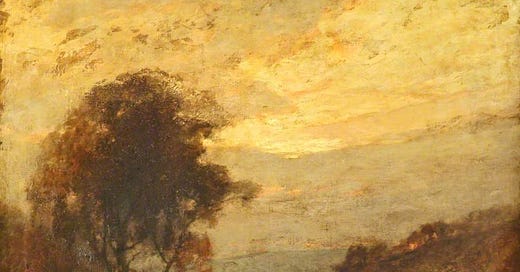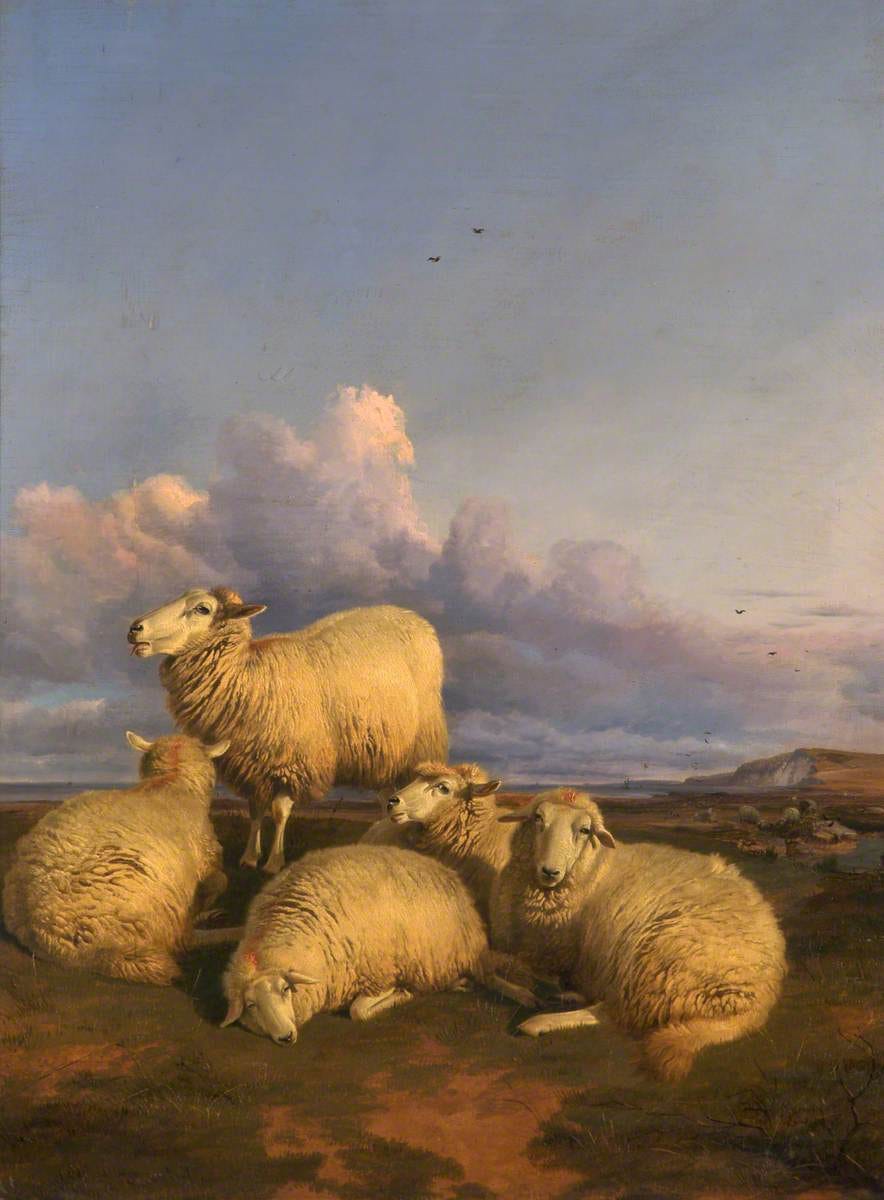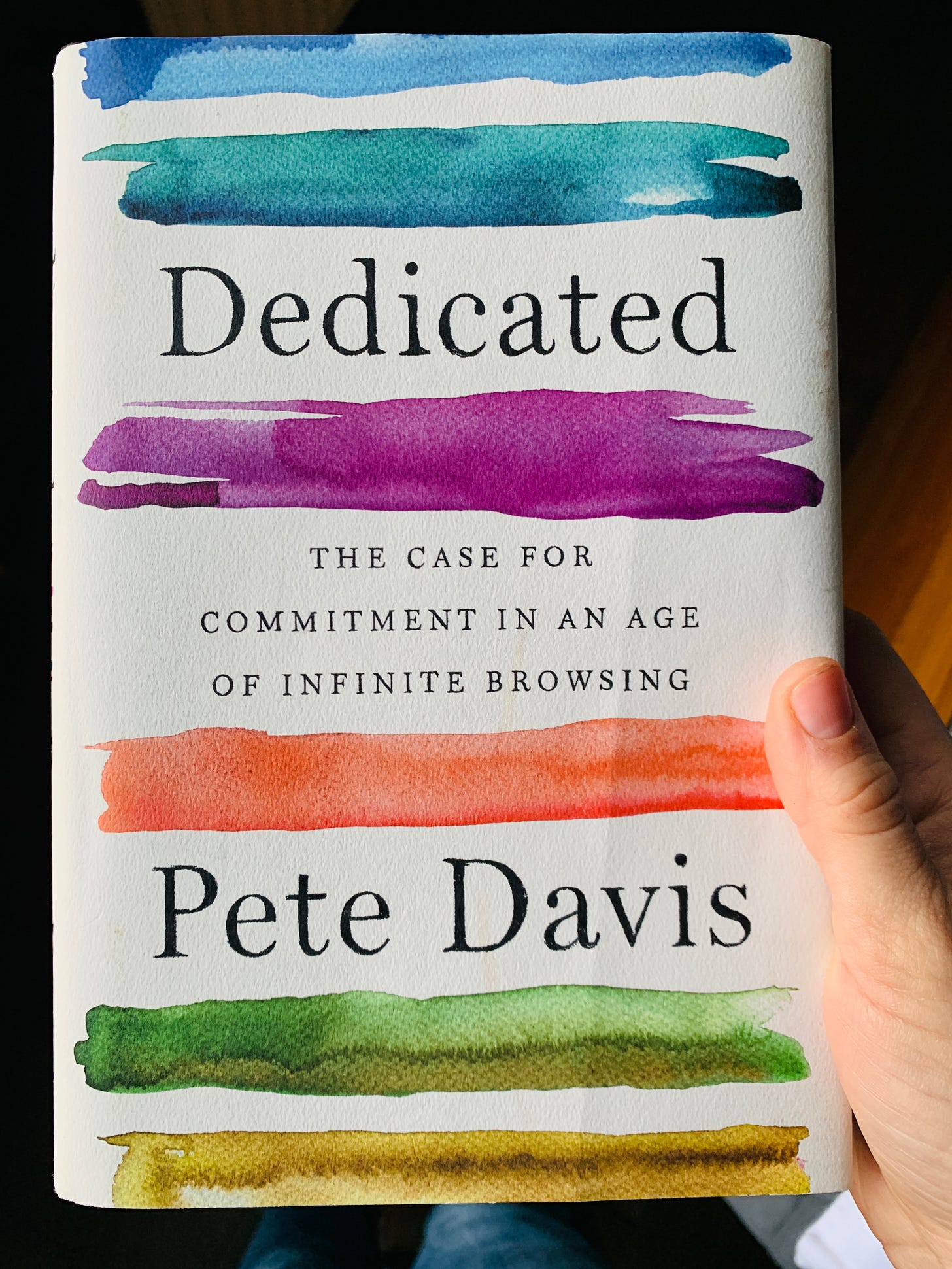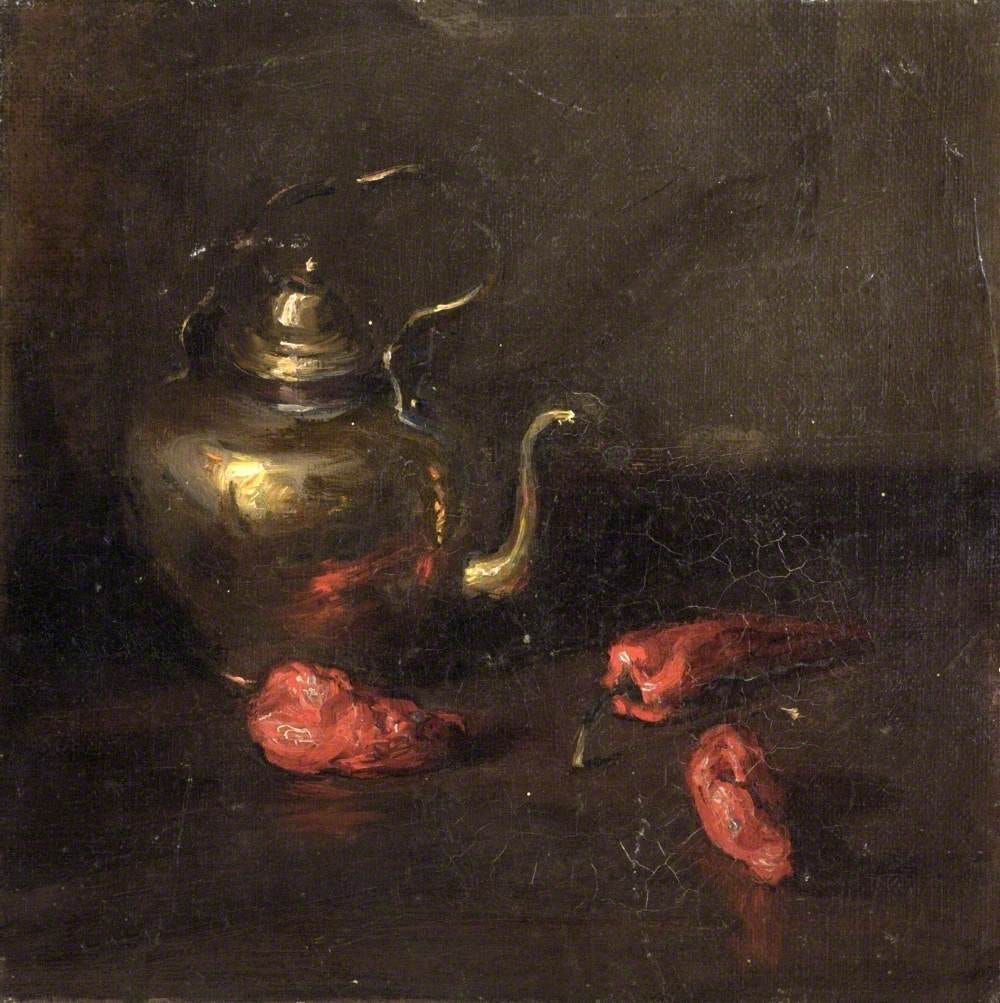This month’s opening essay is from Jake Meador, author of In Search of the Common Good: Christian Fidelity in a Fractured World, editor-in-chief of Mere Orthodoxy, fourth-generation Nebraskan, and a dear friend.
His new book What Are Christians For?: Life Together At the End of the World considers how Western politics have sought “to bend the natural world and human life to its own political and economic ends,” and offers in its stead a Christian politics “rooted in the givenness and goodness of the created world.” (Read an excerpt from What Are Christians For? here, and preorder the book here!)
There’s an oft-quoted verse from the first chapter of that odd, ancient book, “Job,” in which the book’s main character, a rich man named Job, has just lost all of his wealth as well as all his children. Grieving, he says, “naked came I out of my mother’s womb, and naked shall I return thither: the Lord gave, and the Lord hath taken away; blessed be the name of the Lord.”
This is obvious enough, I once thought: He came into the world without anything and that is how he would leave it. But there’s more going on here: He says he both left and will return to his mother’s womb naked. But that means he can’t be referring to his birth mother, for he won’t return to her when he dies. So what does he mean? The American theologian Jonathan Edwards suggests an answer: The “mother” in question, Edwards says, “is the common mother of mankind,” the earth. When he dies, Job will return to, here is Edwards, “the bowels of his Mother Earth, out of which every man is made.” And so God is our Father and the Earth is our Mother.
Edwards is not the only prominent Christian theologian to make this comparison. Pope John Paul II, writing in his pro-life encyclical “Evangelium Vitae,” uses the same language:
Once all reference to God has been removed, it is not surprising that the meaning of everything else becomes profoundly distorted. Nature itself, from being ‘mater’ (mother in Latin), is now reduced to being “matter,” and is subjected to every kind of manipulation.
C. S. Lewis also uses this language, writing in That Hideous Strength that modernity has left us with machines and
crowded cities, empty thrones, false writings, barren beds, men maddened with false promises and soured with true miseries, worshiping the iron works of their own hands, cut off from Earth their mother and from the Father in Heaven.”
Both Lewis and John Paul suggest a similar lesson: when people lose any sense of connection to God, they also lose a sense of connection to the earth and, with that, any sense of restraint or decorum that would govern their use of the earth. This is true, but I want to briefly work in the opposite direction. What do we gain in recognizing the earth as our mother?
Hopefully we gain a renewed ability to delight in her. Imagine the child playing peek-a-boo with her mother or perhaps the college student returning home for the holiday and sharing his favorite childhood meal, prepared specially by his mother. For those blessed with affectionate mothers, there’s a sense of warmth one feels in her presence that can, I think, also be experienced in the beauty of the earth. But that delight is not all that we might learn from recovering this idea. Mothers give of themselves to their children. They carry their child, they sustain the child’s life with their own body. Indeed, they suffer a kind of loss for the good of the child. Rightly understood, this gift we receive from our mothers creates a certain debt we owe to them—honor, at minimum, but likely also care and aid as they age. When we care for our aging parents, we are not simply being kind in an altruistic sense; we are honoring the real and good debts that bind one generation to another. Indeed, the original meaning of the word “piety” concerned the discharging of duties one owed to one’s parents. The classical picture of “piety” is Aeneas carrying his wounded father out of Troy as the city burned. So there is something of a “pious” duty we owe to the earth, which sustains our life not only by providing us with food, but also with water, the materials needed for shelter, and breathable air. In all these ways the earth, our mother, gives to us and we, her children, receive. And just as with our human mothers, so with the earth: This indebtedness comes with a certain obligation that we would honor the earth.
There is perhaps one final thing we could say here, in this brief reflection. Too often, we regard the natural world as bestial and violent. Occasionally this false conception slides into a tacit justification for our own violence. We are not indifferent to the suffering, we are simply “letting nature take its course.” Mass calamity isn’t an occasion for binding ourselves together to one another in solidarity, but is “separating the weak from the strong.” But this is a false idea about how the world works. The great 16th century pastor Martin Bucer suggests a truer imagining of it,
The sky moves and shines not for itself but for all other creatures. Likewise the earth produces not for itself but for all other related things… All the plants and all the animals, by what they are, have, can and actually do, are directed toward usefulness and helpfulness to other creatures and especially to man.”
“Nature,” Bucer says, is not “red in tooth and claw,” as the saying goes. It is, rather, defined in its essence by mutuality and generosity. These things are not, then, altruistic extravagancies or luxuries that we partake of when occasion allows. These qualities are, rather, deeply natural things. When we give of what we have for the good of another, we are simply mimicking the sun and the trees, Bucer tells us. The earth is our mother. And so we enjoy her, care for her, and learn from her.
Jake Meador is the author of In Search of the Common Good: Christian Fidelity in a Fractured World, and the forthcoming book What Are Christians For?: Life Together At the End of the World. His writing has appeared in First Things, Books & Culture, Christianity Today, Front Porch Republic, National Review and Fare Forward. He is the editor-in-chief of Mere Orthodoxy.
How would you answer Jake’s question, “What do we gain in recognizing the earth as our mother?”
Where do you notice mutuality and generosity in the earth’s rhythms? Where do you, perhaps, struggle to see goodness?
Share your thoughts via email, or in the comments below!
in other news
The United States is experiencing the worst blood shortage in over a decade, the American Red Cross says, and blood donors are desperately needed (you can find out more about blood donation here).
Massive drought in the Western United States has shrunk Lake Powell drastically—but in that loss of water, conservationists are celebrating the return of Glen Canyon, America’s “lost national park,” which was flooded to make the lake. “This place is so much more than a storage tank.… That's what this [drought] is showing us. These places can recover.”
In California, “farmworkers … face an extraordinary housing shortage,” Gosia Wozniacka writes for Civil Eats. While 400,000 to 800,000 farmworkers “churn out more than 400 commodities” in the states, most “earn an average annual pay of $20,500 due to the seasonal nature of their job, and often live in areas that suffer severe shortages of affordable housing.”
Covid’s impact on food supply chains may lead to permanent change, Lisa Held writes (also for Civil Eats), as “Food workers across the supply chain have long been some of the lowest paid across industries and subject to terrible working conditions …. ‘The Great Resignation is related to the pandemic, but it’s not about being sick … It’s about dealing with the consequences of workforce issues that finally reached a tipping point and got people thinking differently.’”
Michelle Goldberg suggests that U.S. politics is causing more than just burnout: “the ugliness of American politics is taking a toll on the psyche of the citizenry,” with despair and even thoughts of suicide growing in response to political rancor and division. How can we fight this? Goldberg, for her part, doesn’t offer any easy solutions: “There’s an awful dilemma here,” she writes. “Any way out of the gloom of our current political situation will almost certainly involve even more politics.”
A new study from the National Sustainable Agriculture Coalition (NSAC) considers the higher rates of diversification amongst mid-scale farmers (as opposed to both very small and very large agricultural producers), and explains why and how the size of a farm impacts its adoption of diversification practices.
essays
Leah Libresco Sargeant has a beautiful article in Comment Magazine on indebtedness and the relational implications of a gift economy: “In the Tiv community, debt sloshes. There is a messiness to it …. [but] because everything keeps circulating, the small ‘errors’ of inexactness have a way of working themselves out over the long term. The frequency with which debts, gifts, and favours are exchanged reduces the gravity of any single transaction—it’s the relationship that persists.”
“No country in the world has solved the conundrum of how to permanently dispose of waste that will stay toxic for 400,000 years.” Canada is considering the possibility of storing nuclear waste deep, deep underground—a concept called “deep geological repository”—but no country has tried it yet, and a local community must volunteer to serve as host of the project. This essay by Emma McIntosh offers an excellent in-depth consideration of the possibilities and perils.
I’m fascinated by this review of Worn, a new book which discusses “the complex systems woven between the producers of cloth and its consumers.” In each section, the author “tackles a different raw material—linen, cotton, silk, synthetics and wool—and … explains an aspect of the textile’s manufacture. The result is a book that bulges at the seams with finely spun descriptions of the places and people she encounters.”
This piece by Raul Roman, Lauren Kelly, Rafe H. Andrews, and Nick Parisse explores the “Great Green Wall” initiative in sub-Saharan Africa, which hopes to combat the impacts of deforestation and overgrazing in the Sahel region—but which also has consequences and limitations for younger prospective landowners, women (whose access to land is severely limited), and pastoralists who once used the land for grazing.
February book club + challenge
This month, I’d love to invite you to join me in reading Pete Davis’s book, Dedicated: The Case for Commitment in an Age of Infinite Browsing.
Paid subscribers will get weekly posts from me, unpacking a couple chapters from the book at a time and thinking about their implications. At the end of the month, I’ll be sharing a Q&A with Davis—and I’d love to share a couple of your own questions, if you have them.
I’m offering 75% off the subscription for this month — $1.25 a month, instead of $5 — and would love to gift you a subscription if finances are tight. Just email me and let me know.
As a part of this month’s book club, I’d love to challenge you (and me) to a commitment challenge! Austin Kleon recently talked about Hilary Hahn’s 100 days of practice challenge, and I would love do something similar, together, for the month of February. I’ll be posting my own commitment goals tomorrow, and will invite you to share yours in the comments.
I’m also in the midst of planning a webinar this month (sometime in the next couple weeks, hopefully) with one of my favorite authors—stay tuned for more details!
food
My husband has done a lot of the cooking since I started up grad school, and so my posts here are really all thanks to his discoveries and experiments. He made this delicious pumpkin bread two weeks ago, and it disappeared almost instantly (he substituted the 3 cups of sugar called for with 1 cup white sugar and 1 cup brown sugar). He also made this orange chicken and these crispy fried cauliflower balls for dinner in January, and we loved both.
My contributions to dinner lately: this shepherd’s pie, and this easy and tasty falafel. I also made Molly Yeh’s tater tot hot dish for dinner this month, because I was feeling nostalgic for the casseroles of my childhood.
Recipes to try: romesco-roasted cauliflower, fennel & celery salad, vegan lemon asparagus risotto, and this gorgeous lemon chai cake.
Speaking of fennel: this month, our 3-year-old decided that fennel was her new favorite snack, and smuggled an entire head of fennel into the living room (where we found her nibbling it surreptitiously in a corner). We assured her that she could enjoy the fennel going forward, but to please not stash it in the living room.
listening
Listen to Lee Vinsel (author of The Innovation Delusion) and Michael Sacasas (creator of one of my favorite Substacks, The Convivial Society) discuss Ivan Illich on Lee’s excellent podcast!
“We Don’t Talk About Bruno” (We all loved “Encanto”! Would love to hear your thoughts, if you’ve watched it.)
One year ago: “Why you need ‘boring’ friendships.” (by Leah Libresco Sargeant!)
Two years ago: “Considering minimalism, sore winners, and Fingerbone.”
My book: Uprooted: Recovering the Legacy of the Places We’ve Left Behind.






